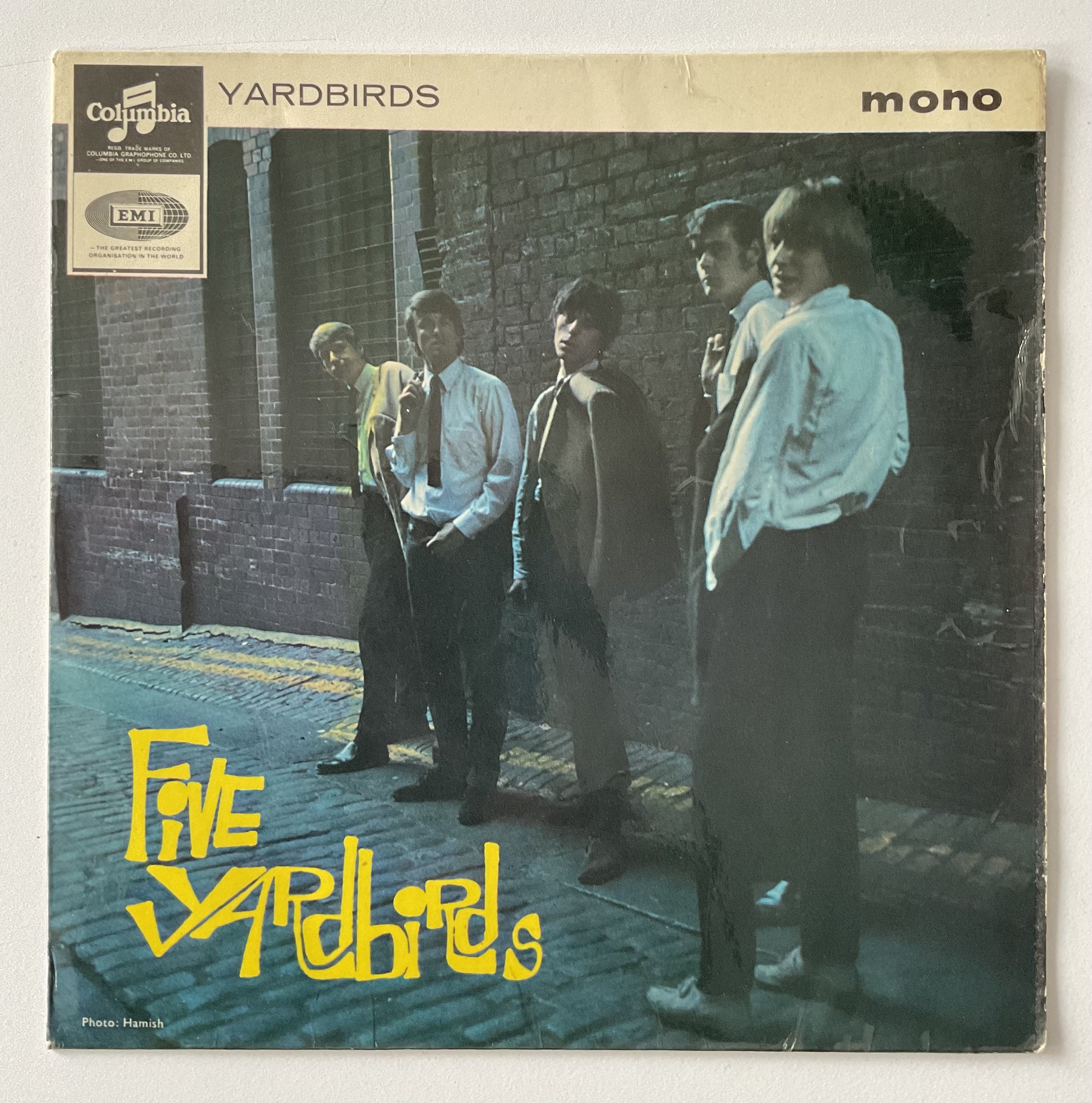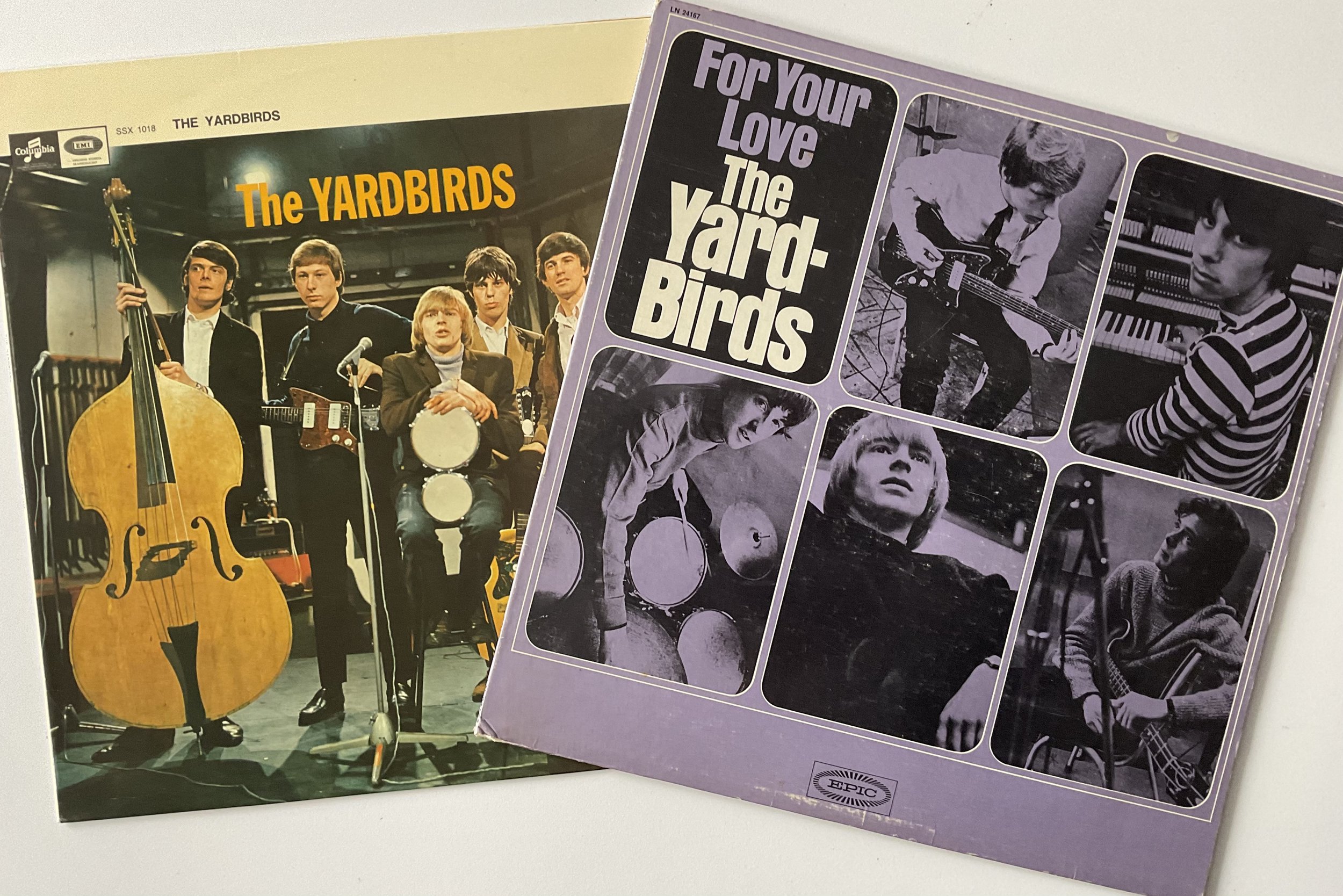If you want to demonstrate to a non-believer why The Yardbirds are among the elite movers and shakers of second-generation rock ’n’ roll then ‘I’m Not Talking’, as found on the flip-side of the US release of ‘Shapes of Things’, will cure their apostasy. Recorded at Advision Sound Studios on 13 April 1965, just one short month after Jeff Beck’s first recording session with the band, none of their peers at that point in time came anywhere close to the coiled controlled aggression displayed on this cover of Mose Allison’s jaunty sounding yet intently spiteful song.
‘My Girl Sloopy’ on the top-side, ‘I Ain’t Done Wrong’ and ‘I’m Not Talking’ jammed together on the flip
In every which way, this cut on US Epic leaves all others behind . . . sonic perfection
Allison was a darling of English art school common rooms; his seemingly effortless bridging of rustic and sophisticated, country and city, black and white, modern and traditional styles was conjoined by a reserved cool that made him sound like no other, until Georgie Fame. The boys and girls in their art school days looked to similarly cross the divides, most usually between home and exile, their time studying art also a time to figure out adult identities (or refuse them, to be forever adolescent).
Rolling Stone Discotheque, New York, September 1965
Part of the attraction of Allison’s music was his undoubted authenticity, a white Southern man who played in a mixed-race trio and who had, it appeared, permission to play the blues, yet who vocalized without blatant imitation of Black voices. Allison seemed to take the blues into the modern age, an ambition that the Yardbirds shared. He was a model worth emulating, as Townshend surely comprehended with the Who’s covers of ‘Young Man Blues’, ‘Eyesight for the Blind’ and ‘One Room Country Shack’.
Allison played on the same bill as the Yardbirds at the fourth National Jazz and Blues Festival in August 1964; they had lifted ‘I’m Not Talking’ from that year’s The Word from Mose, his third album for Atlantic. The Yardbirds kick his song in the head with two drum rolls under revving guitars before exploding down the straight, Beck riding the clutch into the corners, Dreja, McCarty and Samwell-Smith pumping full-throttle, no let up. ‘I’m Not Talking’ is 100 per cent greased-up rock ’n’ roll, the toughest number recorded in Britain in 1965, no question, no argument. Recorded seven months earlier, ‘I’m Not Talking’ is a fulsome precursor to the Who’s ‘My Generation’, scratching the same attitude and style into a Bentley’s paintwork. Both numbers reached the similar conclusion that talking only breeds confusion – things said at midnight might not be said in the morning.
The Swedish version of For Your Love is an improvement on the US edition excluding ‘Sweet Music’ and ‘Putty’ but is still less than perfect.
Gomelsky wasted the two tracks by hiding them on the lower deck of a British EP and on the ragbag For Your Love album, squeezed between Clapton-era rejects of Major Lance’s ‘Sweet Music’ and the Shirelles’ ‘Putty (In Your Hands)’, both trite exercises in the Yardbirds’ hands that fail as pop and anything else they might have aspired towards; the rest of the album included the six sides from the first three singles and their woeful cover of the Vibrations’s ‘My Girl Sloopy’. ‘I’m Not Talking’ and ‘I Ain’t Done Wrong’ would have been better held in reserve to be coupled with subsequent singles and the numbers they would record in the States.
Beck had auditioned for the band in February and made his debut at the Fairfield Hall on 5 March. That the song meant something to him and the band is indicated by it being a key feature of two sessions recorded for the BBC in March 1965 and a third in June, bookending the Advision session in April. All the parts are already present and correct on the Saturday Club take from 20 March but it is a slight, thin affair lacking in the released torque that is exhibited to killer effect on the version cut for Top Gear just two days later.
The third version played for the Saturday Swings show, 4 June, is more cocksure; the band sound comfortable and almost at ease in putting it over, but the cut lacks the nervous rush of tension of their second March run through. They carried over that agitated tautness into the Advision session and then added a bottom end to the sonic structure that is missing on the radio takes. That base constrains and releases Beck’s lead which spools free and snaps back like the screaming line an angler lets run to pull in a hooked marlin.
The BBC sessions are best heard, no argument, on the new Repertoire 4 CD set The Ultimate Live at the BBC which not only boasts of 28 previously unreleased tracks but has seriously improved audio taken from newly discovered and best available sources. Compiled by Ashley Wood, who also provides the authoritative session notes, this is a serious upgrade on all existing collections of off-air and transcription disc collections. Essential





